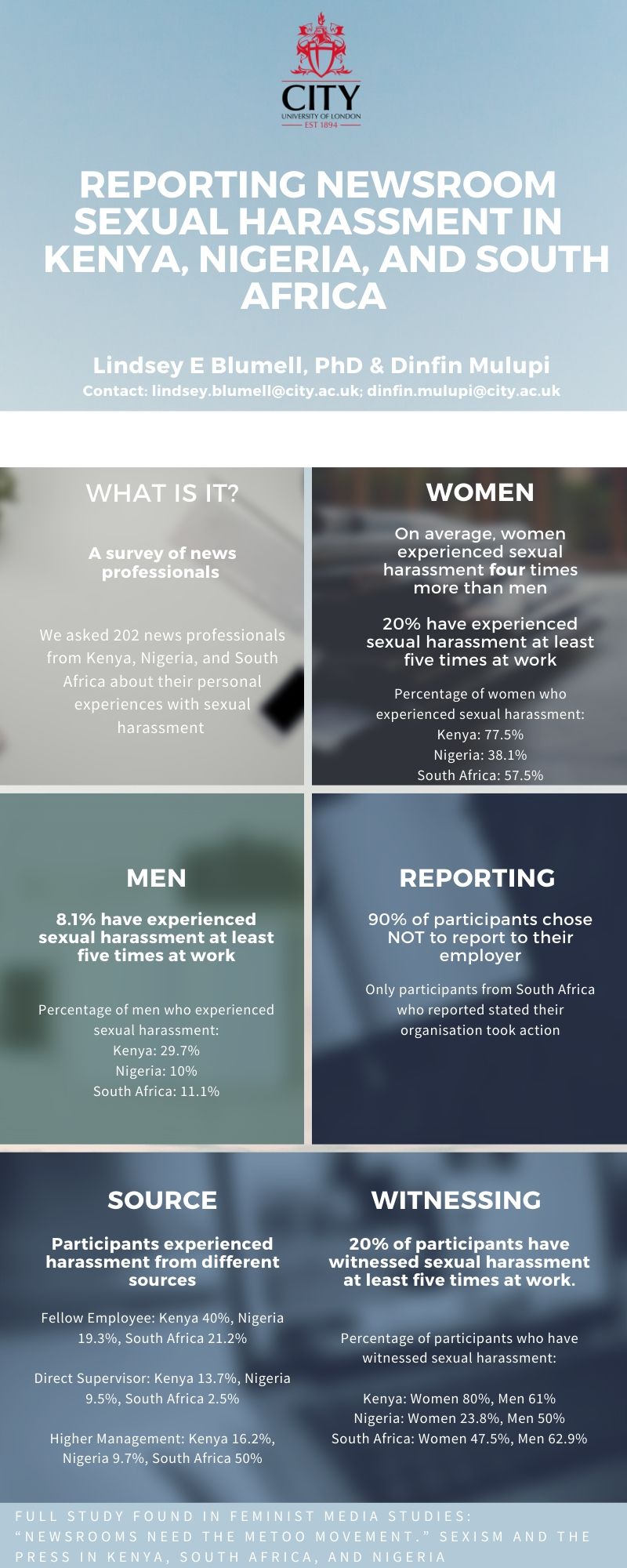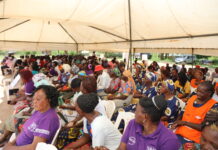By Mary Mwendwa
Nairobi, Kenya: A significant high levels of sexual harassment in some African newsrooms continue to soar, a study has revealed. Researchers at City, University of London recently published the study indicating widespread sexual harassment in the media industry in Kenya, Nigeria, and South Africa. The researchers surveyed 202 news professionals in the three countries about their experiences with sexual harassment.
In Kenya, almost 80% of women reported experiencing sexual harassment at least one time in the workplace, and 40% said they had experienced it five or more times. In South Africa, 57.5% of female participants reported having experienced sexual harassment while the same was true for 38% of female participants in Nigeria. Among men, Kenya ranked higher with 29.7% of male participants saying they have experienced sexual harassment at the workplace followed by South Africa (11.1%), and Nigeria (10%).
“It is evident from this study that sexual harassment is rampant in the media industry in the three countries. While both male and female survey participants reported experiencing sexual harassment in the workplace, on average, women experienced sexual harassment four times more than men,” said Dr. Lindsey Blumell, the lead researcher, and a senior lecturer at City, University of London.
The United Nations (UN) defines sexual harassment as unwanted sexual advances and inappropriate verbal or physical conduct of a sexual nature that creates an intimidating or hostile work environment. Examples of sexual harassment at the workplace include verbal abuse (catcalling, indecent remarks, inappropriate comments about one’s body or sexual appeal), physical abuse (groping, indecent touching), and demands for sexual favors in exchange for benefits or punishing someone for refusing to comply to sexual demands.
Research on the experiences of news personnel in the three countries indicates extremely low levels of reporting. Overall, female survey participants who have experienced sexual harassment in the workplace said they did not report it 82% of the time, while men said they did not report it 98.5% of the time.
While the rate of reporting is extremely low, it is evident that news organizations need to do more when cases of sexual harassment are brought forward. Among the three countries, South Africa ranked higher in terms of news organizations taking action when sexual harassment complaints are filed. However, this was still the case only 12% of the time. Findings also indicate that organizations are more likely to act when an incident of sexual harassment is reported by someone who witnessed it compared to when it is reported by the victim.
“News organizations have a lot of work cut out for them to ensure that their employees feel comfortable reporting incidences of sexual harassment and that proper action is taken when such reports are made. Ultimately, news organizations have a responsibility to ensure the work environment is safe for all their employees,” said Ms. Dinfin Mulupi, a former Kenyan journalist and co-author of the study.
The paper titled ‘“Newsrooms need me to movement.” Sexism and the press in Kenya, South Africa, and Nigeria’ were recently published in the Feminist Media Studies journal.
“We hope that these findings will spur media executives and HR personnel to take serious steps towards creating a safe environment for their employees,” Dr. Blumell concluded.
The full research paper can be accessed via the link below:
“Newsrooms need me too movement.” Sexism and the press in Kenya, South Africa, and Nigeria:https://www.tandfonline.com/eprint/F8S97BVKAEX5Q4XQDQDY/full?target= 10.1080/14680777.2020.1788111















